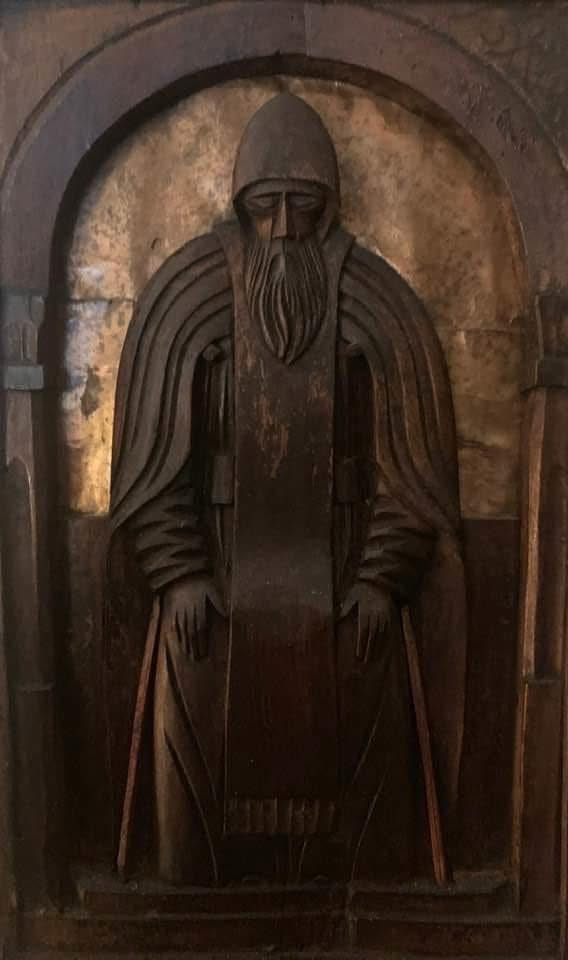Once again, Saint Isaac the Syrian does not hold back in presenting us with the realities of the spiritual struggle and the teachings of the Gospel in an unvarnished fashion. In speaking to us about the beauty of repentance and the healing and the joy that it restores to the soul, Isaac would have us understand that we cannot use this blessing as an excuse to become negligent in the spiritual life. We must not free ourselves from the charge of striving to enter by the narrow way; striving to embrace the fullness of the life in Christ and our dignity and destiny in him.
Sadly, Isaac is driven to speak of this because we often hold the grace of God as something cheap. Jeremiah the prophet warns us that the human heart can be a treacherous thing. It often does not take much, even after years of engaging in the spiritual life and having overcome the passions, to turn back to our sins once again. Two proverbs come to mind in this regard: “As a dog returns to its vomit, so the sinner returns to his sin” and “Pride rideth before the fall.” We often return to what once satisfied the heart whenever we find ourselves wanting or afflicted. Our negligence at times can even manifest itself simply when we are presented with the opportunity. Therefore, Isaac presents us with one example after another of those within the Old Testament who knew great blessings from the hand of the Lord, who were loved dearly by Him and entrusted with extraordinary gifts, and yet turn away from Him. Immediately, not only because of their negligence but because of the ingratitude within their hearts that led them to lose sight of God‘s goodness, they experience the terrible consequence of their sin.
St. Isaac wants us to understand this with great clarity and he uses it as a prelude to speaking about the beauty of the monastic life. He exhorts us to consecrate ourselves to God fearlessly and freely and to understand that “to those to whom much has been given, much will be expected in return”.
The tone of Homily 11 radically shifts. Having prepared our hearts to receive these words, giving great care to lay a foundation of humility, St. Isaac begins to speak of the nature of the monk and how he must be in his appearance and actions an exemplar that will profit all those who see him. His virtues must shine forth like sunbeams; not only for the faithful, but also for the enemies of the truth. They must see in the monk’s life that the hope of salvation which the Christians have is firm and unshakable. St. Isaac describes the monk as the horn of the Church, announcing that the grace and love of God will overcome every enemy to light and life. Others will be moved to emulate his virtue, seeing the beauty of his life; that he embodies the transformation that comes through the grace of God. St. Isaac is telling us that that the monastic life is not simply part of the life of the Church, but it’s very foundation. It not only bears witness to the fact that Christianity is an ascetical religion, but monasticism becomes the boast of the Church of Christ, the world is to see in the monk one who is driven alone by desire for love of God.
Commentary on The Ascetical Homilies of St. Isaac the Syrian Homily 10 and Homily 11 paragraph 1:




Saint Isaac of Ninevah, pray for us! 🌴🌙📗✍🏼🕊️